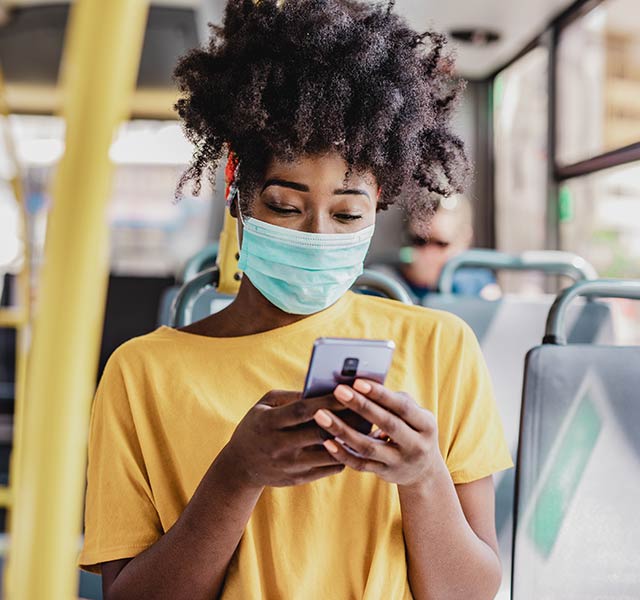Last year, when the COVID-19 pandemic was just beginning, doctors and scientists knew little about how the virus behaved, since it had never before been seen in humans. And while they are still learning more each day, they know much more about COVID-19 now than they did during the pandemic’s early stages.
Thankfully, we also now have three COVID-19 vaccines approved for use in the U.S., and the vaccination process is in full swing. “But until a large majority of the population is vaccinated, COVID-19 will continue to pose a threat to our health,” says Dennis Cunningham, M.D., M.H.A., medical director of infection control and prevention with Henry Ford Health. “That’s why we must still be careful to protect ourselves and those around us from contracting COVID-19.”
Even though so many lives have been lost and so many people have been affected by COVID-19, there are still myths out there that downplay the seriousness of this virus.
Here, Dr. Cunningham debunks five myths about COVID-19 that everyone should know.
- Myth: Kids can’t get COVID-19 or pass it to others. This is FALSE. While it’s true that children have been less affected by COVID-19 than adults, children continue to be infected by COVID-19—and some have developed serious illnesses requiring hospitalization. Children can also spread it to others, so it’s important that everyone (not just adults) stay safe, wear masks and practice social distancing.
- Myth: If you’ve had COVID-19, you can’t get reinfected. This is FALSE. Research suggests that if you’ve had the virus, you have some natural protection from your own antibodies. However, it’s not known how effective that protection is, or how long it will last—and there have been some cases of people who have had COVID-19 getting reinfected. “That’s why everyone should get vaccinated, whether you’ve had COVID-19 or not,” says Dr. Cunningham. “The benefit of getting vaccinated is that you will have a higher, more predictable level of protection against the virus. There’s also data showing that protection from vaccination lasts longer than protection after infection.”
- Myth: If you’ve had COVID-19 but were asymptomatic, you can’t be a long-hauler. This is FALSE. Studies have shown that people who had COVID-19 but remained asymptomatic (meaning they didn’t have symptoms) have gone on to develop post-acute COVID-19 syndrome up to 6 months after recovering from the virus. Same goes for people who have had mild cases of COVID-19: they too have reported symptoms like shortness of breath, digestive issues, fatigue, anxiety, rapid heart rate, headaches and chest pain that have persisted for months. “More research is being conducted on this, but it seems that while people who ended up in the hospital for COVID-19 can experience long-haul symptoms, it doesn’t mean that those who didn’t have a serious case of COVID-19 won’t experience these long-term symptoms,” says Dr. Cunningham.
- Myth: COVID-19 is like the flu. This is FALSE. COVID-19 is a different virus than the flu. It is more contagious, seems to behave more erratically in the body, and has caused more serious illnesses and deaths than the flu. “COVID-19 particles tend to linger in the air longer than flu, and the incubation period of COVID-19 is longer than the flu,” says Dr. Cunningham. “On average, the incubation period for COVID-19 is 2 to 14 days, while for the flu it is 1 to 4 days. This means that you could have COVID-19 for a longer period of time before you even experience symptoms, all the while transmitting it to others.” Even more reason to get vaccinated and follow safety guidelines on mask wearing and social distancing.
- Myth: If you’re young and healthy, COVID-19 won’t make you seriously ill. This is FALSE. While there have been more serious cases of COVID-19 in older adults and in people with underlying health conditions, there have also been serious cases in seemingly young, healthy adults. “That’s one of the most puzzling things about COVID-19,” says Dr. Cunningham. “It can be unpredictable and behave so differently from one person to the next. That’s why we all need to be careful—for those around us, and for ourselves.”
To learn more about safety precautions at our facilities, ways to get care at Henry Ford, or for details on our response to COVID-19, visit henryford.com or call 1-800-436-7936.
Dr. Dennis Cunningham is the medical director of infection control and prevention at Henry Ford Health.



